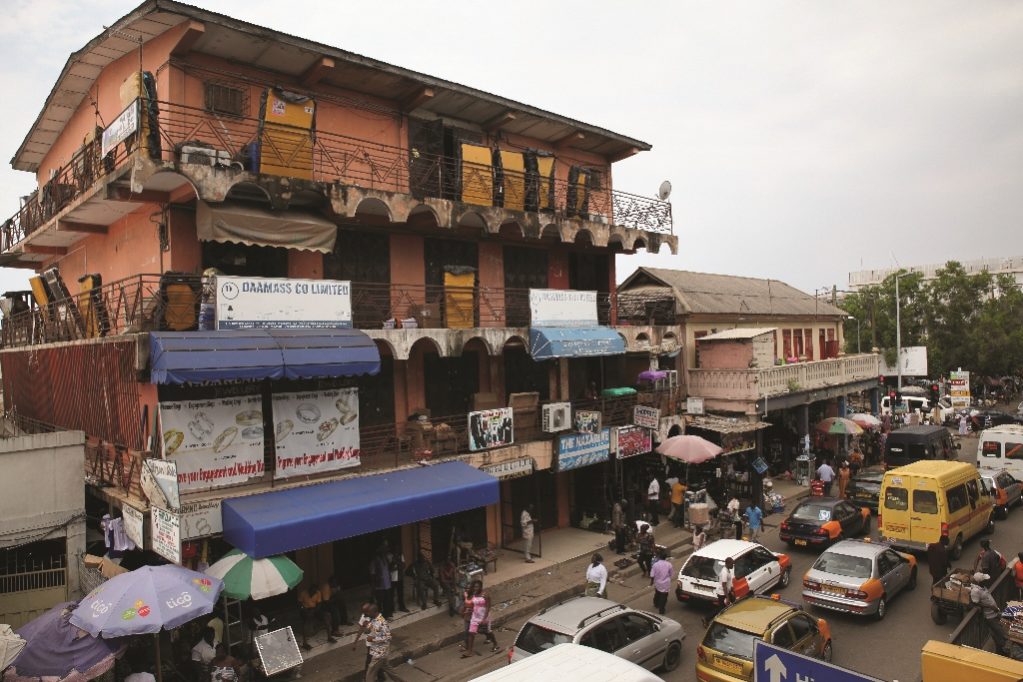In the last year, the cedi has lost more than 40% of its value and was the worst performing currency in Africa, the third worst in the world, in 2014. It was so bad that the government called in the International Monetary Fund.
To make matters worse, power cuts are plaguing the land. In the gloomy streets of Accra, they call it ‘dumsor’ – a colloquial expression meaning ‘on and off’.
Ghana is suffering from power rationing – a hark back to the dark days of 2007 – where people have to check a load shedding timetable to find out when their lights will go out. In February, the Ghanaian government purchased 80 megawatts (MW) from neighboring Abidjan so the nation could watch the African Nations Cup final between the Black Stars and the Mighty Elephants of Ivory Coast; it was the same story when Ghana celebrated 58 years of independence on March 6.
All of this is a blow to President John Dramani Mahama. When he took power, he promised to end load shedding in three months. Halfway through his tenure the lights are still going out.
One cause is the fall of water levels at the Akosombo Dam on the Volta River. The dam produces 558MW of power, or 20% of the Ghana’s needs, 17% down on the electricity it generates at full tilt.
Loading...
The Ghanaian Institute of Statistical, Social and Economic Research has estimated that the power crisis has cost between approximately $85 million to $243 million.
Many who run businesses here say the power crisis has been devastating and expensive; as the number of generators sold increases, the rise in the price of fuel piles on the costs. It is estimated Ghana spends $3 million a day on diesel fuel for its generators. To remedy these rising costs, small and medium enterprises have even gone as far as having two price points for their services – a dumsor price and a non-dumsor price. Even if you have power, the rising cost of it is causing uproar among Ghanaians.
The Cocoa Processing Company and Nestle Ghana complain the lack of power has stalled new projects.
The government has made efforts to rectify the electricity shortage with new power plants in the pipeline. Ghana has also seen a new wave of entrepreneurs, in energy, step forward.
A few minutes’ drive from Kotoka International Airport, a meandering road running alongside the famous Accra Polo Grounds, solar powered streetlights light the way. The plan is to do the same on other roads.
Infrastructural development of Accra over the last few years has been immense but has come at a cost with the Electricity Company of Ghana (ECG) unable to keep up.
Despite the economic hardship, the country is still able to attract foreign direct investment and the government has made efforts to rectify the power shortage.
The Atuabo power plant, which will receive gas from Ghana’s offshore Jubilee oil field, has overcome teething problems and is now in operation. It could generate up to 550MW; Ghana’s power shortfall is estimated to be around 400MW.
Another solution could be the numerous thermal power plants scattered across the country, namely the Asogli, Kpone and Aboadze plants. The problem is a lack of maintenance has seen many of these thermal plants either closed or working below capacity.
Then there is the problem of the bureaucratic ECG; many in Ghana have called for it to be privatized. A poor revenue collection system has led to growing debt that is another unwelcome hazard when it is trying to keep the lights on.
Surely, for this to carry on, is dumsor.
Loading...
